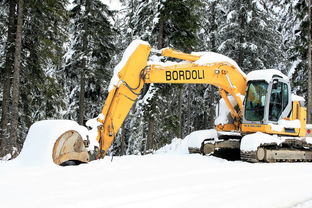Le Vietnam est un pays d'Asie du Sud-Est qui combine la richesse de sa culture ancienne avec les changements rapides de l'époque moderne. En ce qui concerne les soins dentaires, le pays est en train de se moderniser rapidement mais conserve toujours une grande importance pour les traditions.
Lorsqu'on pense aux soins dentaires au Vietnam, il peut être tentant de penser à de vieilles cliniques rudimentaires avec des outils dépassés. Cependant, c'est une image qui n'est plus tout à fait précise. Avec le développement rapide de l'économie vietnamienne, de nombreuses cliniques dentaires ont été construites ces dernières années. Ces centres dentaires modernes fournissent un service de qualité avec du matériel médical dernier cri, et des dentistes formés dans des écoles prestigieuses à l'international.
Les dentistes formés localement sont généralement formés à l'École de Médecine Dentaire du Vietnam, mais beaucoup sont également formés à l'étranger. De nombreux dentistes sont diplômés de la faculté de médecine dentaire de l'Université de Hanoi ou de l'Université Médicale de Ho Chi Minh-Ville. Ils ont acquis leur formation professionnelle en France, au Japon, en Australie, aux États-Unis et dans d'autres pays développés. Ils ont donc les compétences nécessaires pour offrir des soins de pointe à leurs patients.
La transition du système de soins dentaires traditionnel au Vietnam vers des services plus modernes n'a pas été facile. De nombreuses personnes âgées continuent de recourir aux traitements traditionnels, car elles ont grandi avec une certaine forme de confiance dans ces pratiques. Pourtant, de plus en plus de Vietnamiens optent pour des soins plus professionnels et modernes.
Cependant, malgré cette évolution vers une approche plus moderne des soins dentaires, il existe encore une certaine confusion entre les traditions et la pratique médicale actuelle. Par exemple, bien que les dentifrices traditionnels à base de plantes aient une grande popularité parmi les anciennes générations, de nombreuses personnes plus jeunes préfèrent utiliser des produits dentifrices plus modernes.
De plus, alors que la médecine traditionnelle vietnamienne est toujours populaire dans le traitement des problèmes dentaires, de plus en plus de gens reconnaissent l'importance des visites de routine chez le dentiste pour une bonne santé bucco-dentaire. Les anciennes méthodes traditionnelles comme l'utilisation de bâtonnets dentaires naturels et les herbes médicinales pour soulager la douleur ne sont plus aussi courantes.
Les dentistes modernes au Vietnam jouent un rôle essentiel dans l'amélioration de la santé bucco-dentaire de la population. Ils font la promotion d'une bonne hygiène dentaire, organisent des campagnes de sensibilisation sur l'importance des soins dentaires réguliers et fournissent un traitement de qualité.
En conclusion, les soins dentaires au Vietnam ont connu une transition spectaculaire de la tradition à la modernité. Bien que les pratiques traditionnelles restent présentes, de plus en plus de Vietnamiens prennent conscience de l'importance des soins dentaires modernes et professionnels. La combinaison de la tradition et de la modernité offre un aperçu fascinant des défis et des opportunités qui caractérisent la transition de la société vietnamienne vers la modernité.
Title: A Vietnamese Dentist: Between Tradition and Modernity

Vietnam is a Southeast Asian country that combines the richness of its ancient culture with the rapid changes of the modern era. When it comes to dental care, the country is rapidly modernizing but still holds great importance for traditions.
When thinking about dental care in Vietnam, it may be tempting to think of old, rudimentary clinics with outdated tools. However, this image is no longer entirely accurate. With the rapid development of Vietnam's economy, many dental clinics have been built in recent years. These modern dental centers provide quality service with state-of-the-art medical equipment, and dentists trained in prestigious international schools.
Dentists locally trained are usually trained at the Dental Medicine School of Vietnam, but many are also trained abroad. Many dentists are graduates of the Faculty of Dentistry of Hanoi Medical University or Ho Chi Minh City Medical University. They have acquired their professional training in France, Japan, Australia, the United States, and other developed countries. They therefore have the necessary skills to provide advanced care to their patients.
The transition from traditional dental care systems in Vietnam to more modern services has not been easy. Many older people continue to resort to traditional treatments because they grew up with a certain degree of confidence in these practices. However, more and more Vietnamese are opting for more professional and modern care.
However, despite the transition towards a more modern approach to dental care, there is still some confusion between traditions and current medical practice. For example, while traditional plant-based toothpaste remains popular among older generations, many younger people prefer to use more modern toothpaste products.
Furthermore, although traditional Vietnamese medicine is still popular in treating dental problems, more and more people recognize the importance of regular visits to the dentist for good oral health. Traditional methods like using natural toothpick sticks and medicinal herbs to relieve pain are no longer as common.
Modern dentists in Vietnam play an essential role in improving the oral health of the population. They promote good dental hygiene, organize awareness campaigns on the importance of regular dental care, and provide quality treatment.
In conclusion, dental care in Vietnam has undergone a spectacular transition from tradition to modernity. Although traditional practices remain present, more and more Vietnamese are becoming aware of the importance of modern and professional dental care. The combination of tradition and modernity offers a fascinating glimpse into the challenges and opportunities that characterize Vietnam's transition towards modernity.
(Traduit en vietnamien)
Nha khoa Việt Nam: Giữa truyền thống và hiện đại
Việt Nam là một quốc gia Đông Nam Á kết hợp sự giàu có của nền văn hóa cổ đại với những thay đổi nhanh chóng của thời đại hiện đại. Khi nói đến việc chăm sóc răng miệng, đất nước đang phát triển một cách nhanh chóng nhưng vẫn giữ vai trò quan trọng đối với các phong tục truyền thống.
Khi nghĩ về việc chăm sóc răng miệng ở Việt Nam, người ta có thể nghĩ đến những phòng khám thô sơ với dụng cụ y tế cũ kỹ. Tuy nhiên, hình ảnh này không còn chính xác nữa. Cùng với sự phát triển kinh tế nhanh chóng của Việt Nam, nhiều phòng khám nha khoa đã được xây dựng trong những năm gần đây. Các trung tâm nha khoa hiện đại cung cấp dịch vụ chất lượng cao với máy móc y tế tiên tiến, và bác sĩ được đào tạo tại các trường danh tiếng quốc tế.
Bác sĩ được đào tạo trong nước thường được đào tạo tại Trường Y khoa Nha khoa Việt Nam, nhưng nhiều người cũng được đào tạo ở nước ngoài. Nhiều bác sĩ tốt nghiệp Học viện Y tế Hà Nội hoặc Đại học Y tế Thành phố Hồ Chí Minh. Họ đã học hỏi chuyên môn của mình tại Pháp, Nhật Bản, Úc, Hoa Kỳ và các quốc gia phát triển khác. Họ có những kỹ năng cần thiết để cung cấp chăm sóc tiên tiến cho bệnh nhân của mình.
Quá trình chuyển đổi từ hệ thống chăm sóc răng miệng truyền thống ở Việt Nam sang các dịch vụ hiện đại không phải lúc nào cũng dễ dàng. Nhiều người lớn tuổi vẫn tiếp tục sử dụng phương pháp điều trị truyền thống vì họ đã lớn lên với niềm tin nhất định vào những phương pháp này. Tuy nhiên, ngày càng nhiều người Việt Nam chọn các dịch vụ chăm sóc chuyên nghiệp và hiện đại hơn.
Tuy nhiên, mặc dù quá trình chuyển đổi hướng tới cách tiếp cận hiện đại đối với việc chăm sóc răng miệng, vẫn có sự nhầm lẫn giữa truyền thống và thực hành y tế hiện đại. Ví dụ, mặc dù kem đánh răng truyền thống làm từ cây cỏ vẫn phổ biến trong thế hệ lớn tuổi hơn, nhiều người trẻ hơn lại thích sử dụng sản phẩm kem đánh răng hiện đại hơn.
Ngoài ra, mặc dù y học truyền thống Việt Nam vẫn được ưa chuộng trong việc điều trị các vấn đề về răng miệng, ngày càng có nhiều người nhận ra tầm quan trọng của việc đi khám nha sĩ định kỳ để duy trì sức khỏe răng miệng tốt. Phương pháp truyền thống như dùng cành cây tự nhiên làm bàn chải đánh răng và thảo dược chữa đau không còn phổ biến nữa.
Các bác sĩ nha khoa hiện đại ở Việt Nam đóng một vai trò quan trọng trong việc cải thiện sức khỏe răng miệng của dân số. Họ thúc đẩy vệ sinh răng miệng tốt, tổ chức các chiến dịch nâng cao nhận thức về tầm quan trọng của việc chăm sóc răng miệng định kỳ và cung cấp các điều trị chất lượng.
Tóm lại, việc chăm sóc răng miệng ở Việt Nam đã trải qua một quá trình chuyển đổi từ truyền thống sang hiện đại đầy kịch tính. Mặc dù các phong tục truyền thống vẫn tồn tại, ngày càng có nhiều người Việt Nam nhận ra tầm









